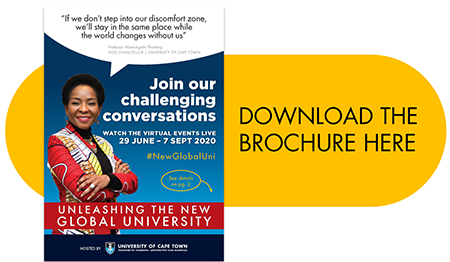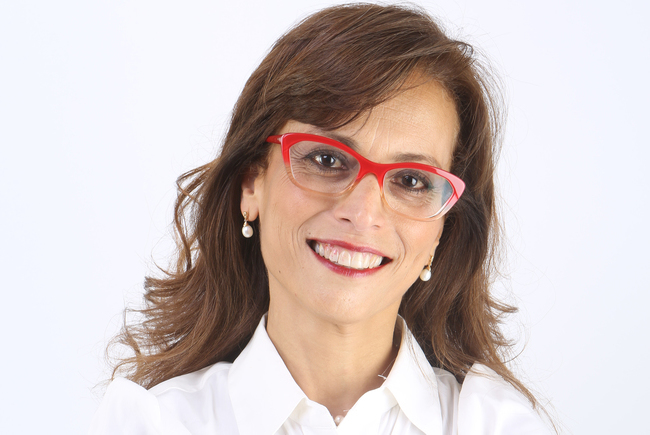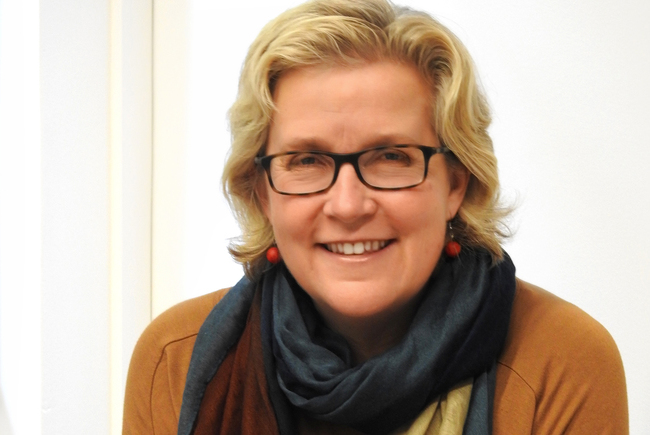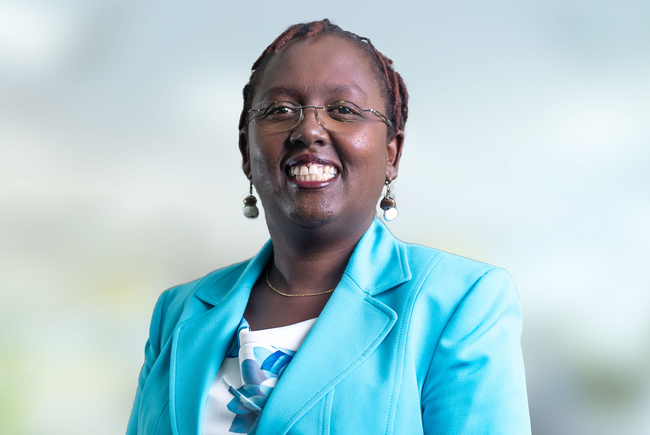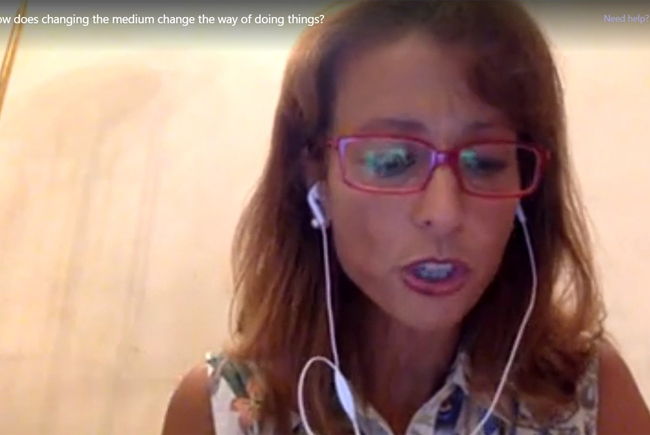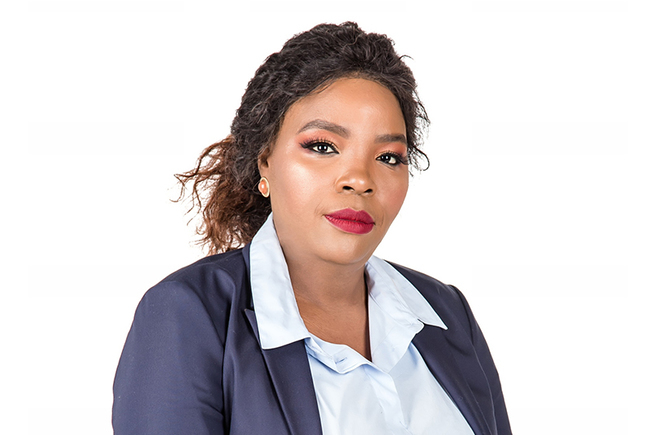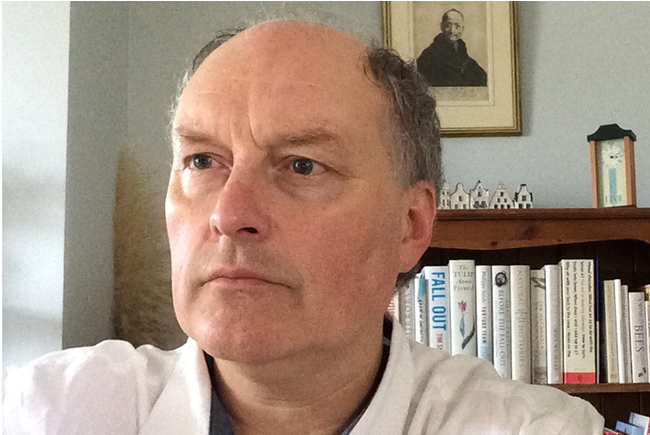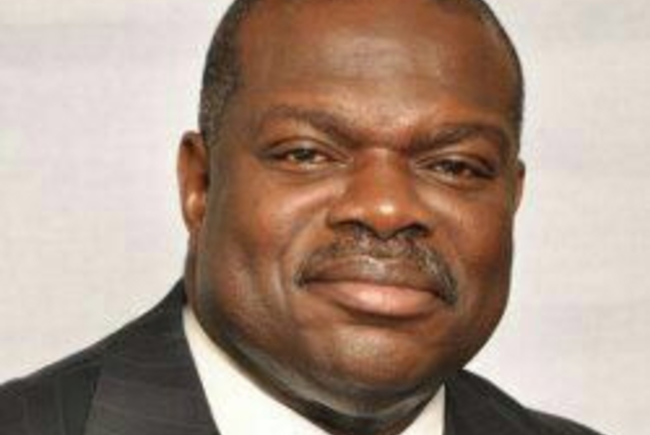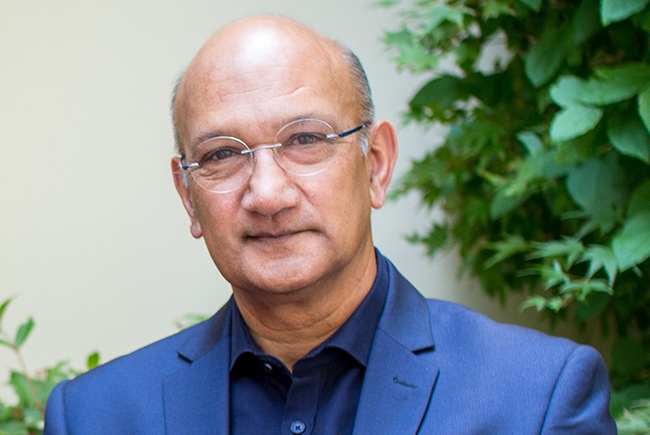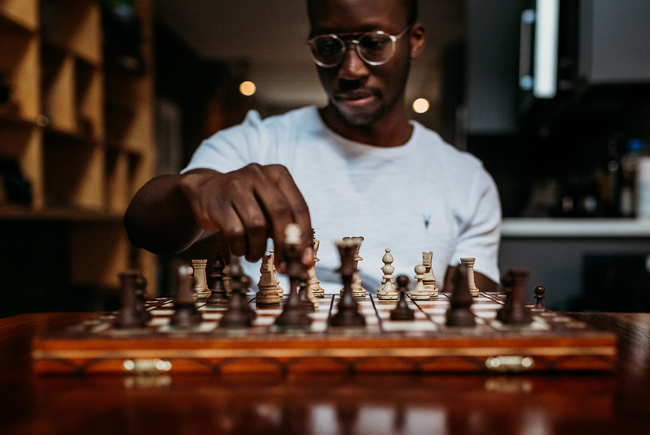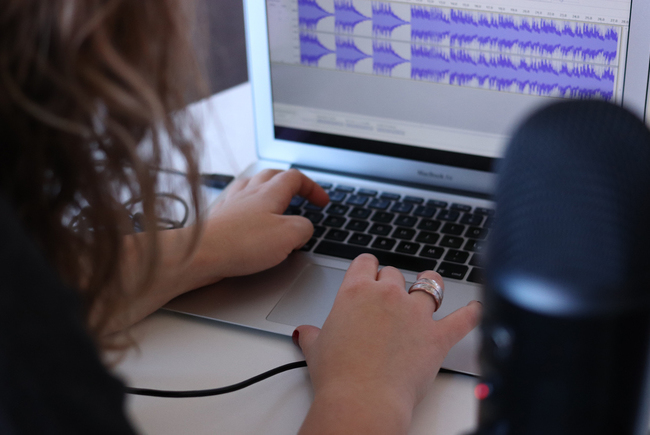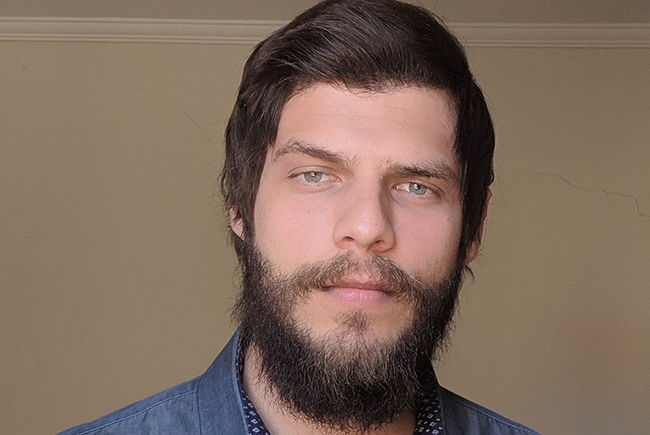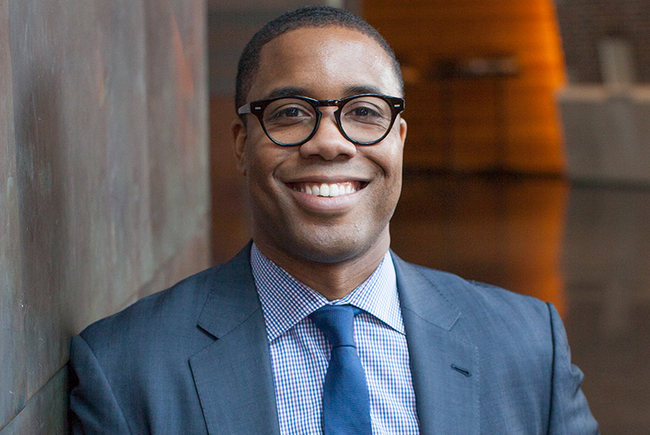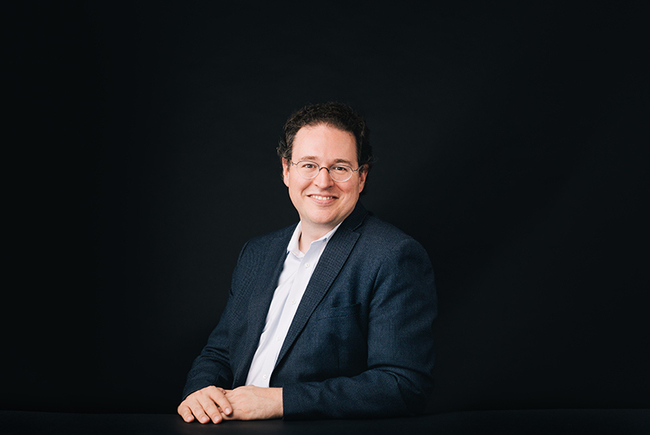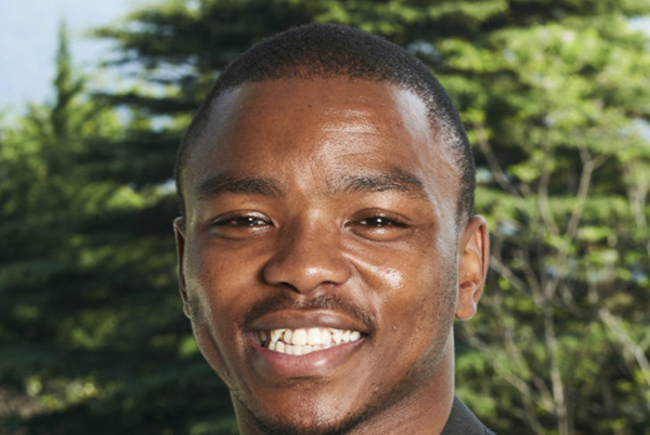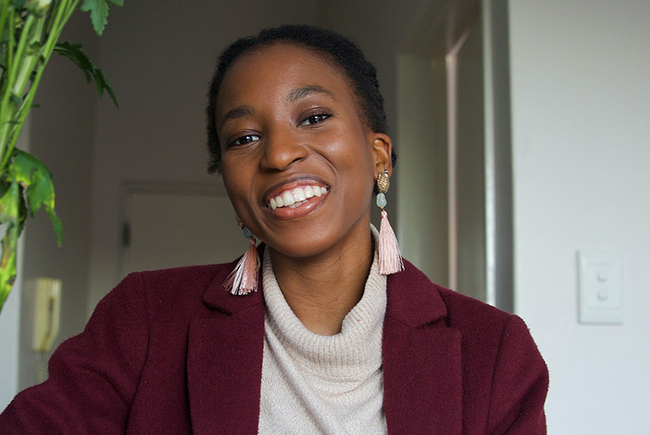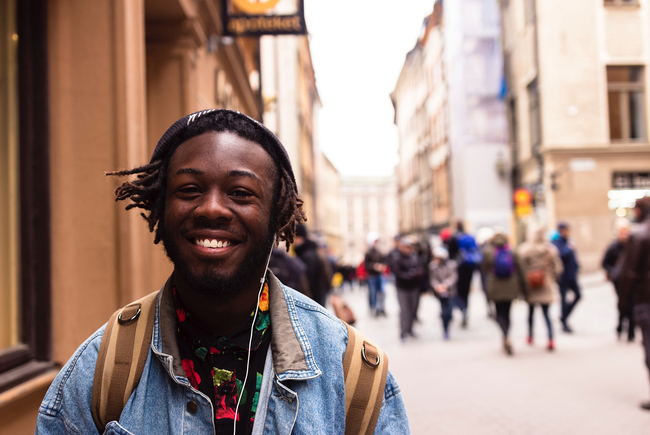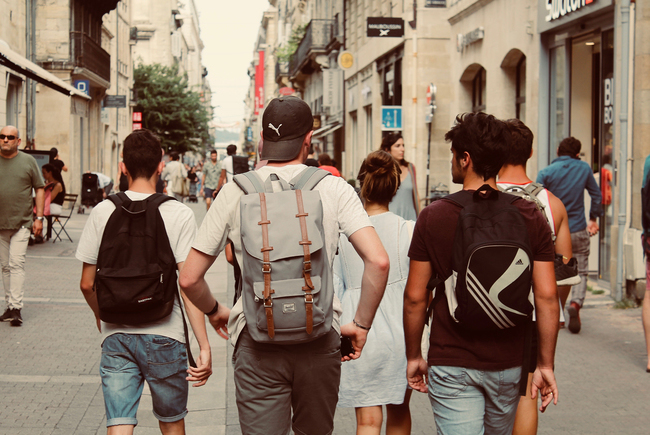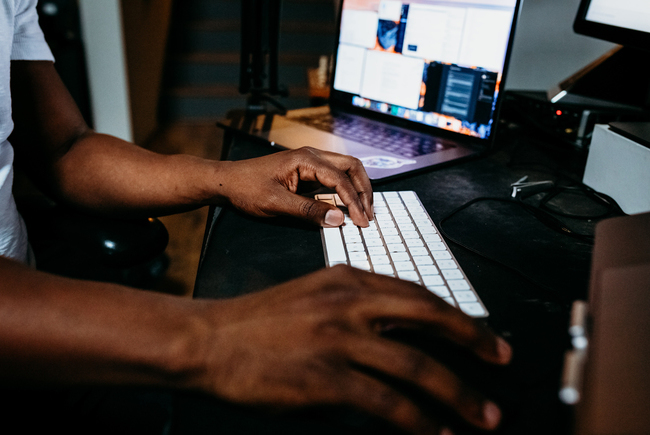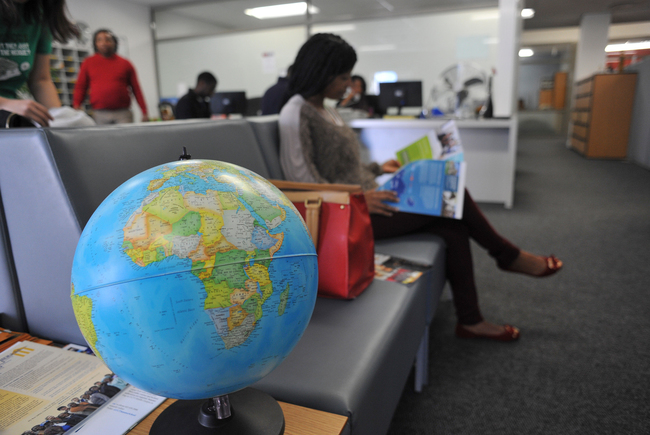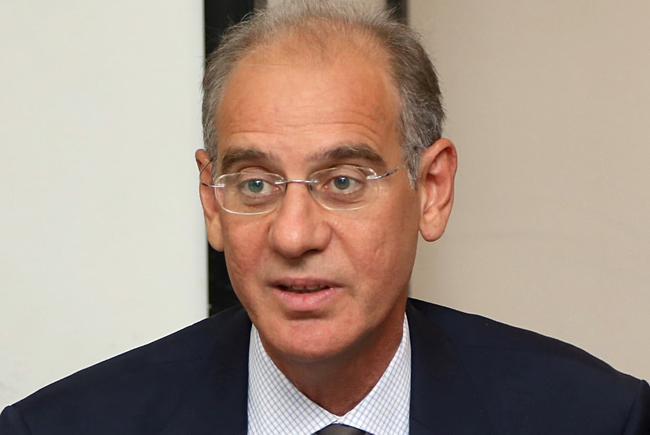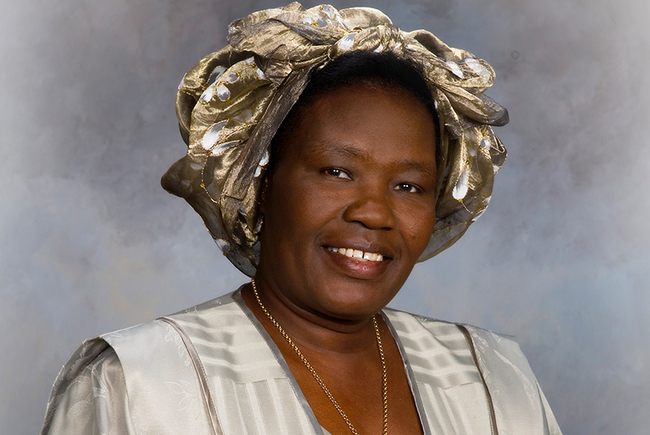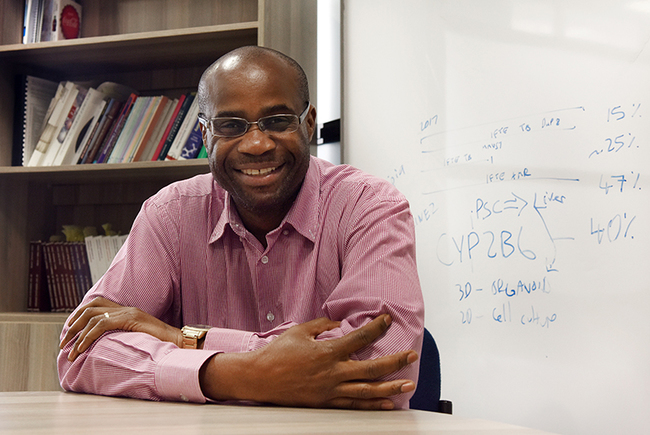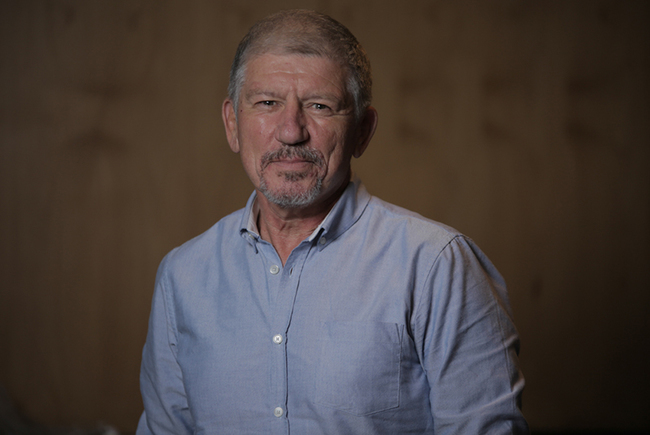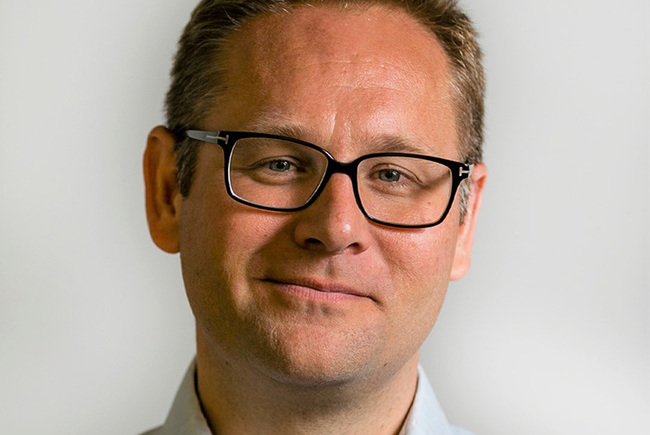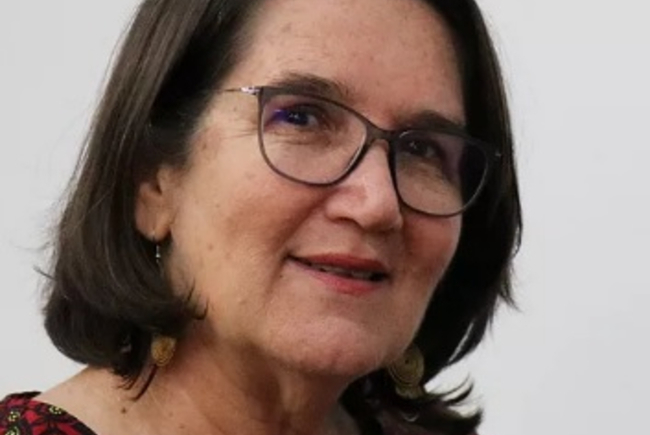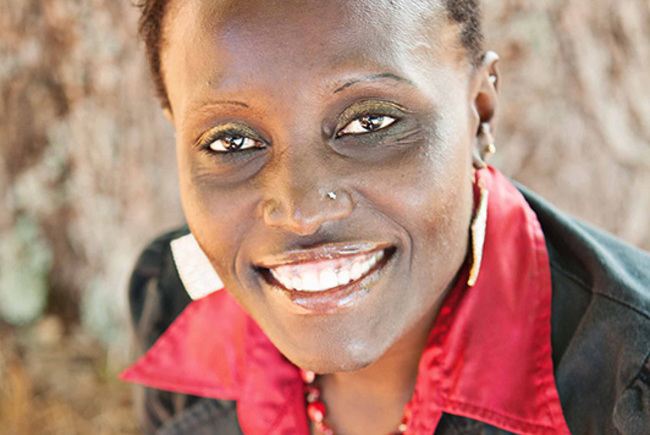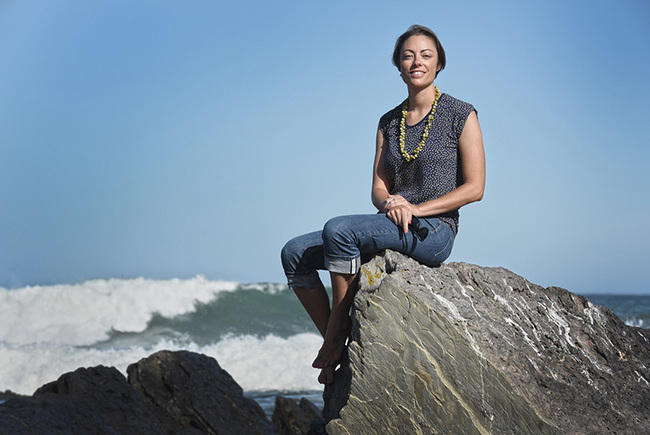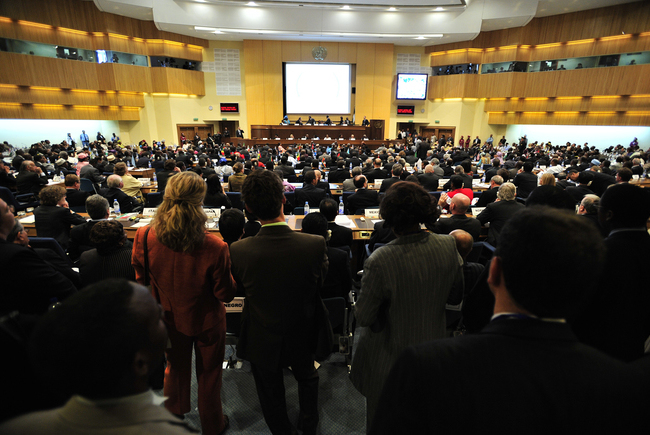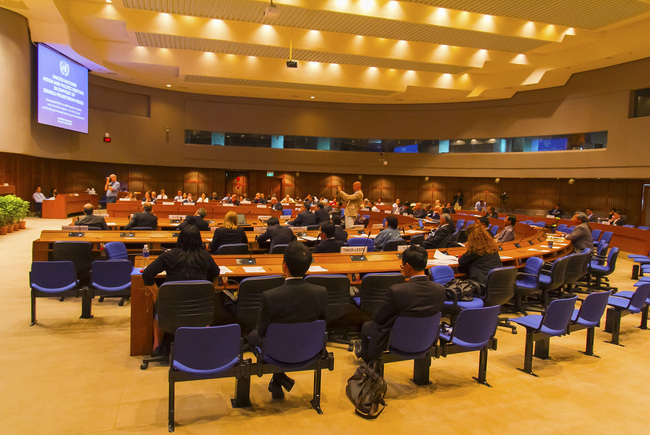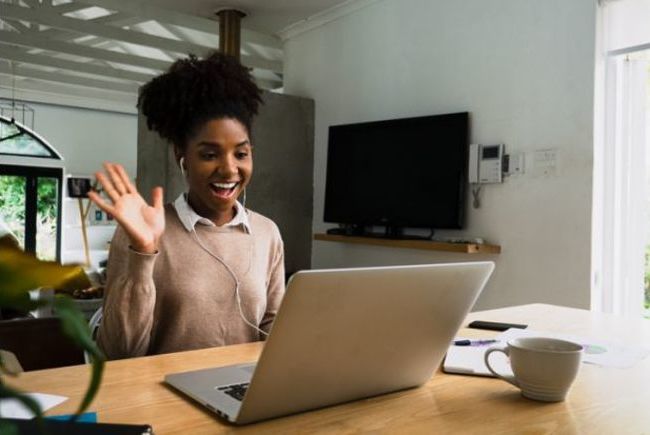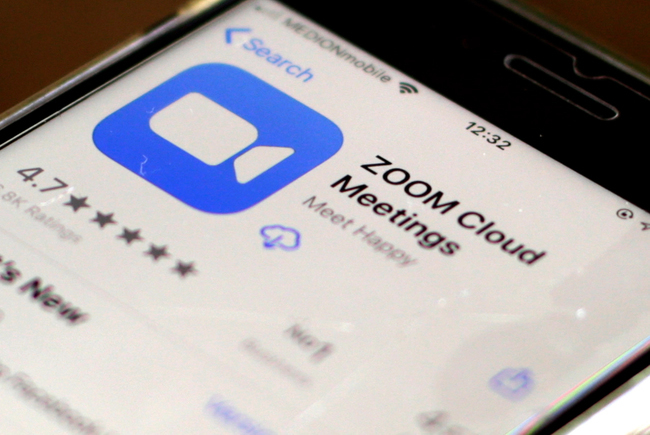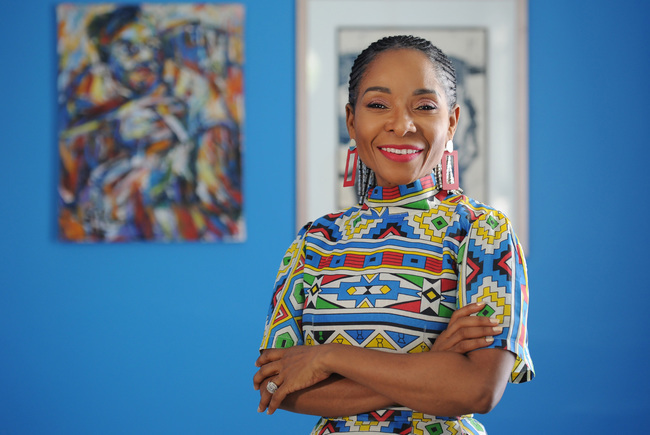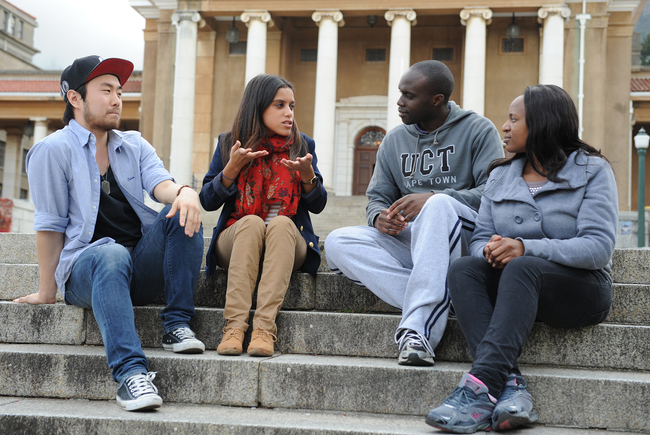Rethinking international postgrad experiences
27 August 2020 | Story Laura Rawden. Photo ConvertKit, Unsplash. Read time 7 min.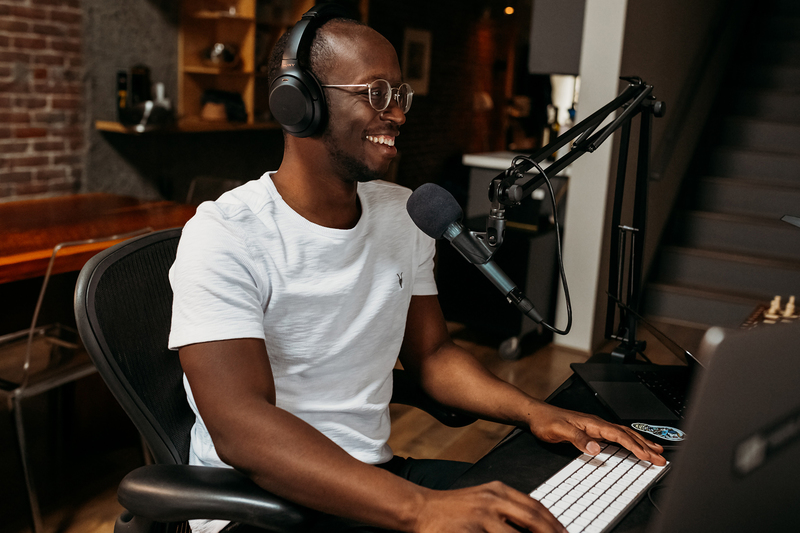
“There is a case to be made for re-thinking the international experience for postgraduate students – whether there is a pandemic or not,” said University of Cape Town (UCT) vice-chancellor Mamokgethi Phakeng, at the fourth installment in the webinar series, Unleashing the new global university.
Noting the unsustainability of the current model of internationalisation, which relies heavily on students flying around the world, Phakeng said it also creates barriers for those from the global south who might not have access to funds or visas to travel.
“But international experiences and contexts build how we think, solve problems and identify problems that need to be solved,” she said. For postgraduate students the experience is integral to developing as world-class researchers with access to new technologies, career opportunities and leaders in their fields.
Considering this, Phakeng asked: “Is international travel a prerequisite to gain such experience?”
Use virtual to enable collaboration
Digital technologies can significantly enhance the delivery of postgraduate degree training, said Ernest Aryeetey, professor of economics and secretary-general of the African Research Universities Alliance (ARUA).
When teaching goes online, you’re saying here’s an opportunity to listen and take your own time according to your needs.
Speaking at the fourth #NewGlobalUni event held on 24 August, he pointed to online tools that allowed the sharing of resources and collaboration as most valuable, especially for African countries developing graduate degree programmes.
“I’ve seen in Ghana, Kenya and Nigeria, for example, growing numbers of people seeking graduate degrees,” he said. “The ability to deliver these programmes would best be achieved by working hand-in-hand with universities where the resources already exist.”
Virtual learning may also help improve postgraduate learning outcomes, said speaker Hangwelani Hope Magadimisha-Chipungu from the University of KwaZulu-Natal, who is the DST/NRF/SACN SARChl Chair in Inclusive Cities.
“People don’t have the same articulation or understanding of issues. When teaching goes online, you’re saying here’s an opportunity to listen and take your own time according to your needs and how you understand the concept,” she said.
Build postgrad peer groups online
Aspects of research could indeed be conducted virtually, but the need for virtual peer groups should also be acknowledged, said Daya Reddy, president of the International Science Council, and DST/NRF SARChl Chair in Computational Mechanics at UCT.
Noting the stress, loneliness, and financial and academic challenges postgraduates face, he emphasised the value of social cohesion as part of an overall postgrad programme. “Social cohesion in the postgraduate community is a key to resilience, success and ultimately to a richer experience,” he said.
“This is an ideal opportunity to initiate virtual peer groups that include a rich mix of graduate students in the global south and the rest of the world that communicate and build social cohesion.”
That’s not to say that international peer groups aren’t possible in the current environment – even with COVID-19 constraints. According to Magadimisha-Chipungu, internationalisation has already started at home with people from different cultures and backgrounds mixing daily.
“The flow of international migrants worldwide amounts to 130 people moving every minute,” she said. “In academia, that means faculties are driven by teaching that taps into experiences from home countries and engaging with students from different environments, cultures and languages.”
Address equity in internationalisation
That’s not to say the lived experience of internationalisation isn’t important – and possibly irreplaceable.
“The lived experience of travel and contact with the environment and people, we aren’t going to replace that with anything else,” said Magadimisha-Chipungu.
“It’s important and it’s needed. But it’s not equitable.”
Equity should form the foundation of new programmes as we look to the future, said Terence McMaster, associate professor at the School of Physics at the University of Bristol and director of its graduate school.
“Social cohesion in the postgraduate community is a key to resilience, success and ultimately to a richer experience.”
Citing the novel Researchers without Borders PhD programme between the University of Bristol and UCT as an example, he said it was built on a premise of equity and sharing time, resources, costs and intellectual property.
“Equity has to permeate the design of the programme. If we can get the fundamentals right, then our students will be able to take advantage of a future either with prolonged separation from face-to-face contact or a new normal which is regular online interaction,” he said.
The next and final event in the #NewGlobalUni series, happening on 7 September, will focus on these and other learnings gathered from the complete series so far.
By looking at how changing the medium changes the way of doing things, Phakeng confirmed that the final installment will “push the boundaries of conventional thinking around the future of the global university.”
Register for that live digital conversation here.
Unleashing the new global university: next up
How does changing the medium change the way of doing things?
7 September 2020 / 17:30–18:30 (CAT/SAST)
Covid-19 has radically changed the ways that universities do everything: research, teaching, social responsiveness and internationalisation. The great hope has been that we can use new technologies to be more creative in the ways we shape international experiences and collaborations, and to do so in ways that lessen the negative characteristics of the old model. How will changing the medium challenge the nature of global relationships?
Confirmed participants:
- Achille Mbembe, professor in history at the Wits Institute For Social & Economic Research, University of the Witwatersrand, South Africa
- Monica Kerrets-Makau, academic director for Africa, Thunderbird School of Global Management, Nairobi, Kenya
- Kate Bowles, associate dean international, Faculty of the Arts, Social Science and Humanities, UOW, Australia
- Nagla Rizk, professor of economics and founding director, Access to Knowledge for Development Center (A2K4D), School of Business, the American University in Cairo, Egypt
Follow the #newglobaluni and join the conversation on Twitter.
 This work is licensed under a Creative Commons Attribution-NoDerivatives 4.0 International License.
This work is licensed under a Creative Commons Attribution-NoDerivatives 4.0 International License.
Please view the republishing articles page for more information.
Unleashing the new global university
A series of challenging conversations
The pandemic has disrupted higher education international activities and the income on which universities increasingly depend. But the previous model was already problematic, contributing to global warming and benefitting rich universities more than poor. Unleashing the new global university is a series of virtual events in which we invite innovative, international and local speakers to have challenging conversations that help us rethink global collaborations for a sustainable and equitable planet.
Conversation #5: How does changing the medium change the way of doing things?
Monday, 7 September 2020, 17:30–18:30 (CAT/SAST)
Covid-19 has radically changed the ways that universities do everything: research, teaching, social responsiveness and internationalisation. International students have gone home or are in lockdown unable to physically experience the countries they are visiting; they are completing courses through remote learning. Conferences have gone online. Researchers are collaborating on virtual platforms.
Ironically, the lockdown has seen an opening up of connections, as distance ceases to be a barrier. While the opportunity to tangibly experience the location has gone, there have been many positive aspects to these changes, which universities have embraced, and are looking to take into the future.
The great hope has been that we can use the new technologies on which we are now relying during the pandemic to be more creative in the ways we shape international experiences and collaborations, and to do so in ways that lessen the negative characteristics of the old model.
How will changing the medium challenge the nature of global relationships? What have the opportunities been to decentre and disturb existing internationalised power relations?
This session will creatively address how more equal relationships might be formed; how digitally mediated forms of global engagement might enable what Nancy Fraser calls “participatory parity”.
Host
- Mamokgethi Phakeng, vice-chancellor, University of Cape Town, South Africa
Moderator
- Laura Czerniewicz, professor, director: Centre for Innovation in Learning and Teaching (CILT), University of Cape Town, South Africa
Participants
Videos
News
Conversation #4: Postgraduate researchers: can we rethink the international experience?
Monday, 24 August 2020, 17:30–18:30 (CAT/SAST)
What are the markers of a truly enriching postgraduate experience? From a global north perspective, being able to travel abroad to access resources and expertise from elsewhere in the globe, create new networks and build a CV have been almost taken for granted and a central tenet of the postgraduate experience. Postgraduates in the global south have had far fewer opportunities for mobility. The COVID-19 pandemic has ended international travel for all postgraduates, creating an opportunity to stop and think: can we make the postgraduate international experience more equitable by going virtual? In this challenging conversation, we explore what will be lost and gained if postgraduates gain an international experience as deskchair travellers.
Host
- Mamokgethi Phakeng, vice-chancellor, University of Cape Town
Moderator
- Sue Harrison, deputy vice-chancellor for research and internationalisation, University of Cape Town
Participants
Videos
News
Conversation #3: Undergraduate student mobility: are virtual experiences a realistic substitute?
Monday, 27 July 2020, 17:30–18:30 (CAT/SAST)
The number of undergraduate students travelling for part or all of their degrees has increased dramatically in the last few years. Some of these students are on exchange or scholarships; the majority pay large fees, which increasingly form a substantive portion of the income of their destination institutions. The pandemic brought most of this mobility to a halt. These international experiences can be rich, even life-changing: both the exposure to new ways of thinking, but also to new ways of living. But they come at a cost – both to the environment, and often to the student, meaning only the well-off can afford them. Using what we are learning from the global shift to emergency online teaching and learning, can we envisage a more sustainable, equitable model? What are the most valuable aspects of the international experience for students, and for which of those can we find creative virtual alternatives?
Host
- Mamokgethi Phakeng, vice-chancellor, University of Cape Town
Moderator
- Sue Harrison, deputy vice-chancellor for research and internationalisation, University of Cape Town, South Africa
Participants
Videos
News
Conversation #2: International collaborations: how can we shift the power towards Africa?
Monday, 13 July 2020, 17:30–18:30 (CAT/SAST)
The second event focused on whether or not the disruption to the current higher education model can bring about a shift in the centre of gravity in international collaborations and help us to reimagine a different approach that empowers African institutions to take the lead in collaborative projects and partnerships both within and outside the continent.
Host
- Mamokgethi Phakeng, vice-chancellor, University of Cape Town
Moderator
- Salome Maswime, professor in global surgery, University of Cape Town
Participants
Videos
News
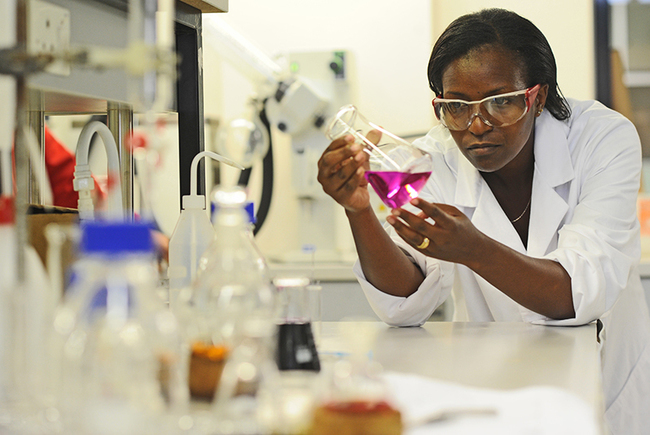
17 Jul 2020 Republished
Conversation #1: Academic conferences: how virtual can we go?
Monday, 29 June 2020, 17:30–18:30 (CAT/SAST)
Our first event focused on the future of conferences and international meetings. Most of us will by now have attended virtual versions of large international gatherings that were intended to be physical get-togethers. Should we consider this to be the future of conferences? What are the gains and losses of online conferences, workshops and consortium meetings? How can conferences be reinvented?
Host
- Mamokgethi Phakeng, vice-chancellor, University of Cape Town
Moderator
- Kelly Chibale, professor in organic chemistry, director of H3D, University of Cape Town
Participants
Videos
News







